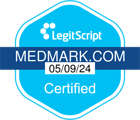There are two different addiction treatment formats that have proven to be very effective.
Many people looking into addiction recovery programs are unsure about the options available to them and how they differ. Several avenues exist to help those with opioid use disorder overcome the disease of addiction and rebuild their lives. Some routes allow people to enroll in treatment with minimal disruption and maximum support for future long-lasting recovery.
When considering outpatient treatment, the two most common options are office-based opioid treatment (OBOT) and opioid treatment programs (OTP). It is important to learn how OTP and OBOT help with opioid addiction recovery in their own unique ways. This information will make it easier to decide which method of addiction care is most accommodating to your lifestyle and goals.
Learn About Two Different Outpatient Addiction Treatments that are Effective
Residential short and long-term inpatient treatment programs may not be feasible for everyone. Not everyone can take time away from their lives and responsibilities to attend treatment for upwards of 90 days. Not only do these treatment centers come with a significant financial investment, but they are sometimes far away from home. Although some people may require intensive inpatient treatment recovery programs, this is not the case for most people.
This is why it is important to understand how OTP and OBOT help with opioid addiction recovery. These evidence-based outpatient treatments are preferable for many because they do not have to attend an inpatient facility. They will have access to their lives, families and responsibilities as they work on their opioid recovery.
Those looking into treatment options often encounter terms like OBOT and OTP to describe convenient and private outpatient recovery programs. However, the acronyms can often be confusing and overwhelming without deeper research.
OBOT: Office-based opioid treatment (OBOT) is the term used for standardized outpatient services provided for those with opioid use disorder. OBOT treatment allows primary care or general health care practitioners to prescribe certain FDA-approved medication for the treatment of substance use disorders.
OTP: Opioid treatment programs (OTP) include accredited clinicians certified to administer FDA-approved medication-assisted treatment (MAT) to patients for opioid use disorder. Medications most often involve methadone but can also include buprenorphine and naltrexone as well. OTPs are the only setting in which medical providers can administer methadone legally.
*OTP programs can be categorized in two ways: OTP with methadone and OTP with buprenorphine. The difference matters in states where laws differ based on treatment medications and prescribing protocols. Despite these differences, the clinic dispenses the medication on site or via take-home medication but does not prescribe it.
OBOT vs. OTP: Which Outpatient Treatment Option is Right for You?

Every patient requires a specific approach to treat substance use disorder. There is no “one-size-fits-all” solution for everyone. Addiction cannot be “fixed” by simply taking these medications, regardless of the incredible advancements in addiction science. Opioid use disorder treatment involves a dynamic program that includes medication with substance use counseling. This way, there is plenty of individual work for each patient to excel and reach their recovery goals.
Benefits of OBOT: The benefits of OBOT services include the convenience of a prescription medication that you will self-dispense at home. Required periodic check-ins with your medical provider occur in this format. This all happens in a treatment center that looks and feels like any other doctor’s office.
Along with open communication with your provider, you are privy to substance use counseling in both individual and group settings. Counseling provides critical support for long-lasting recovery as you work to regain control over your life and addiction.
Still, this method is not for everyone and puts much responsibility on the patient. Take-home medication increases the risk of relapse and tests the self-motivation of those who may need a more structured program.
Benefits of OTP: Although OBOT has several advantages, OTP with methadone treatment is also highly effective and recommended for opioid use disorder. Many patients enjoy the routine of visiting their clinic daily to receive their dose of medication. The process can help establish a schedule and sense of drive for those just starting their recovery journey. Once the patient is stabilized, they may also have access to take-home medications, decreasing the visits to the treatment center.
In some states, insurance may only cover OTP, while other jurisdictions include both methadone and buprenorphine in various settings. Be sure to carefully consider your options before you decide on outpatient addiction care.
If you decide on one format but change your mind throughout the course of your treatment, it is not a problem. Your medical provider can help you taper off one medication before starting another. Although the transition can take some time, it occurs with the help of experienced and professional nursing staff.
Both OTP and OBOT allow you to remain in your home or an area you desire to live in.. This is particularly advantageous for people with children and family or a career or other responsibilities.
Many find long-term recovery success with outpatient treatment because it does not isolate them from the world like inpatient care. You may find that you will become more resilient, much faster and reach your recovery goals with outpatient treatment programs.
Discover Effective Opioid Recovery Programs with MedMark Treatment Centers
Our team at MedMark Treatment Centers is determined to provide our communities with the opioid treatment programs they need. If you want to take control of your addiction and rebuild your life, this is the sign you have been waiting for.
Find the nearest location or contact us today to learn more about the recovery options available to you. Opioid addiction recovery is possible. Our compassionate and knowledgeable professionals are waiting to help.




